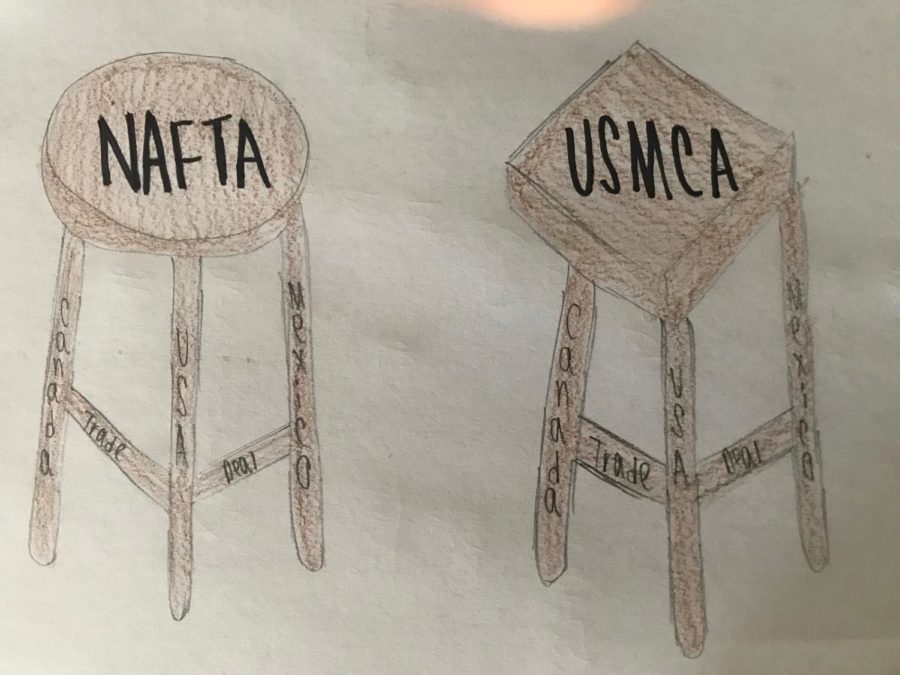The New NAFTA isn’t New
Picture by Pranesh Kumar
October 16, 2018
On Monday, October 3, President Trump spoke at the White House’s Rose Garden and announced the end of the North American Free Trade Agreement (NAFTA). The replacement of the pact was long overdue, especially given how much Trump criticized NAFTA in the past. At the press conference, the president claimed that the treaty had led to enormous trade deficits and the loss of millions of manufacturing jobs. He promised to renegotiate the deal, and a new deal has finally been passed after months of negotiating with Canada. The treaty is now called the United States-Mexico-Canada Agreement (USMCA) and has been described by Trump as revolutionary. However, this is hardly the case given the minor changes that have been made to the original agreement.
The USMCA is nowhere near the radical makeover of NAFTA that Trump had promised. It maintains NAFTA’s continental free-trade zone and has kept most of its provisions, while only offering some increased benefits to American workers. For instance, the deal requires that 70 percent of a car’s components be made in Canada, the U.S., or Mexico (instead of 62.5 percent). Workers making more than $16.00 per hour must now contribute to at least 40 percent of the labor going into the manufacturing of the car (instead of 30 percent). Additionally, there are stricter labor requirements on Mexico and tariffs have been reduced on some Canadian dairy products.
The business community of the U.S. has happily welcomed the deal because of how the changes will somewhat affect foreign manufacturing. Labor unions aren’t sure how to react, though their reactions will most likely be subdued. Furthermore, the reaction from congressional Democrats was also very minor. Some congressmen have mildly applauded the deal, while others have declined to take a stance on it. These reactions have given the impression that the deal is unanimously accepted by all parties. However, given the media’s mild reaction to this deal as well, it only goes to show how little the USMCA has changed NAFTA.
Trump suggested that the new agreement is likely to trigger a surge in U.S. manufacturing. However, the changes are so marginal that they are likely not going to affect the economy severely. The USMCA will not drastically affect trading between the U.S., Canada, and Mexico either. Basically, the USMCA is a revamped version of NAFTA with some polishing and new branding.
Ever since becoming president, Trump has been known for not being as radical as he had previously claimed he would be. His new NAFTA is no exception to this. It is an ideal agreement for all parties, but definitely not revolutionary.




